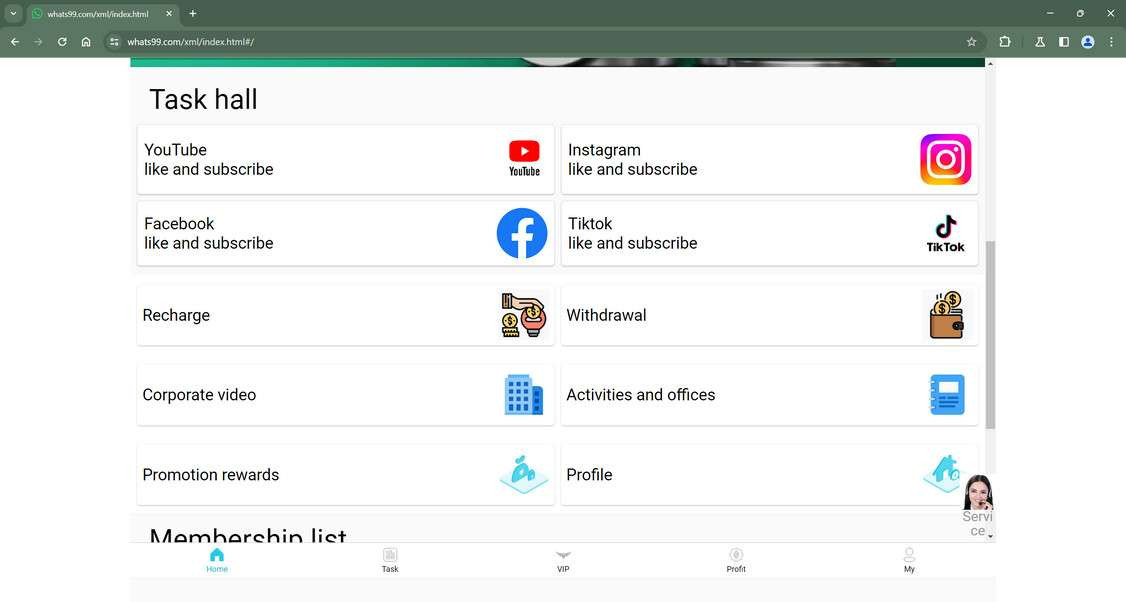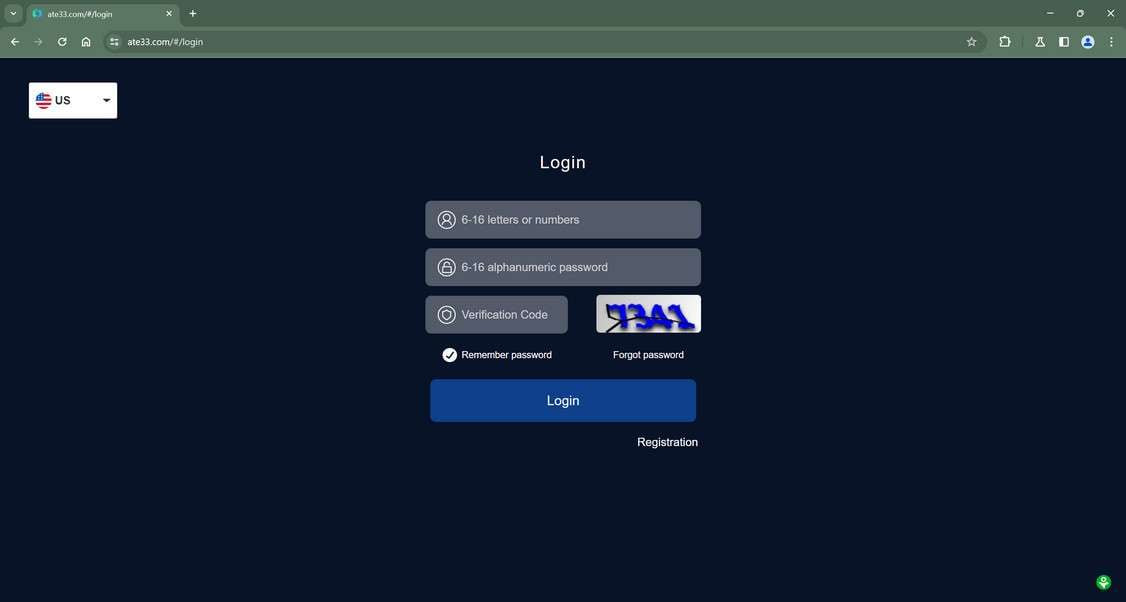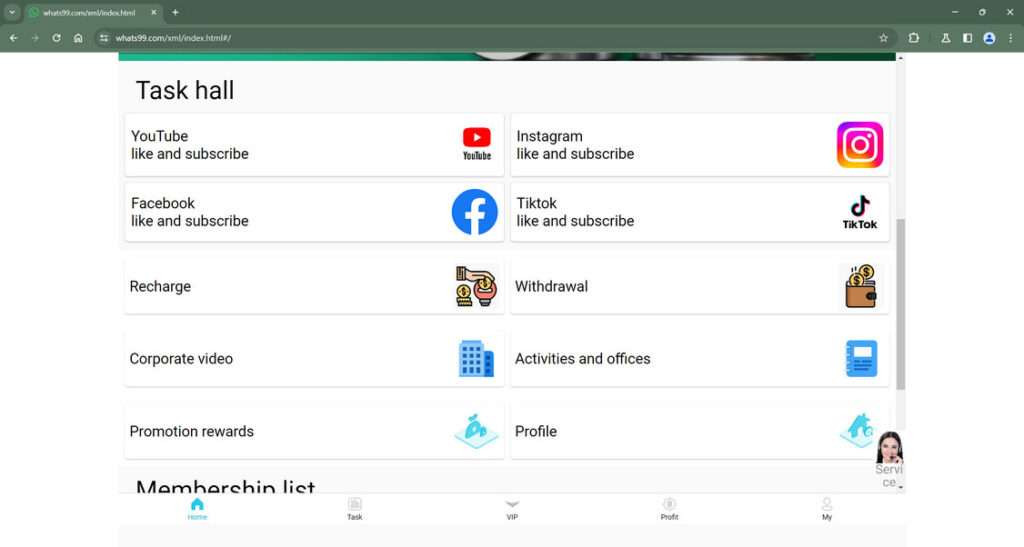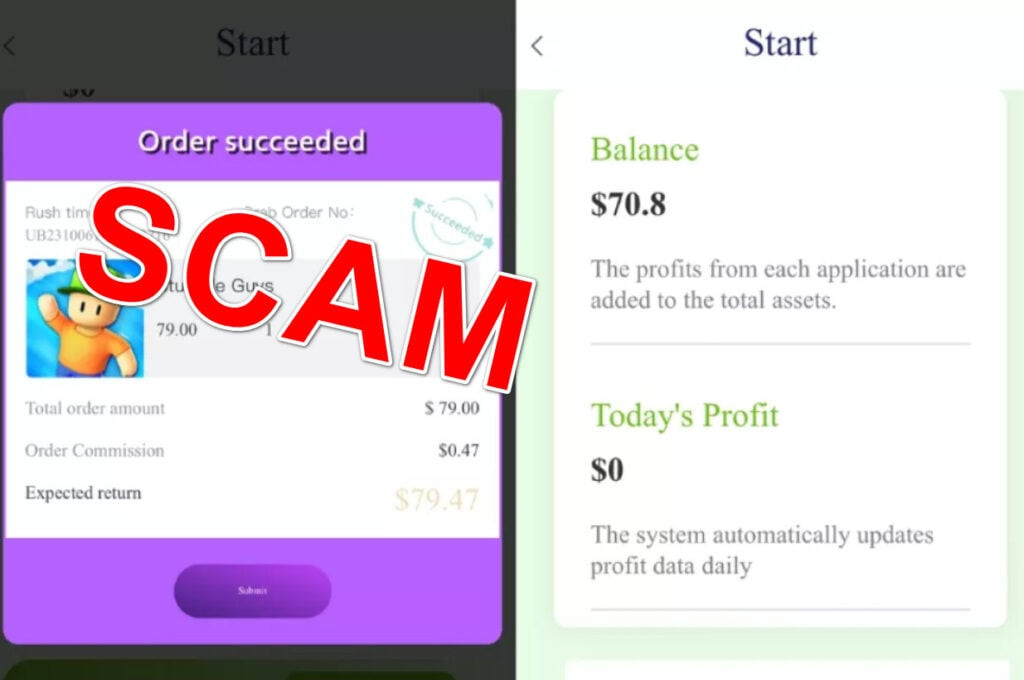In today’s competitive job market, the allure of remote work is stronger than ever. Unfortunately, scammers are exploiting this desire, and one prominent example is the fake “Bright Pioneer Consulting” recruitment scam. This fraudulent scheme preys on job seekers with promises of high-paying, work-from-home positions that simply don’t exist.
Operating through spam emails, text messages, and social media, these scammers impersonate the legitimate Bright Pioneer Consulting company to lure victims. They advertise enticing roles in customer service or data entry, boasting attractive salaries and benefits. However, these “job” opportunities are nothing more than a sophisticated facade designed to steal money from unsuspecting individuals.
This article provides a comprehensive breakdown of the Bright Pioneer Consulting Scam. By understanding their methods and manipulative tactics, you can protect yourself and avoid falling into this malicious trap.
 Job Scam 3
Job Scam 3
 Job Scam 1
Job Scam 1
 Job Scam 2
Job Scam 2
Understanding the Bright Pioneer Consulting Scam
The Bright Pioneer Consulting job scam is a deceptive scheme where fraudsters falsely claim to represent the real Bright Pioneer Consulting. It’s crucial to emphasize that the actual Bright Pioneer Consulting has no connection to this scam and is being impersonated. Scammers misuse the company’s name to send out fake job advertisements for customer service or data entry roles, aiming to deceive and exploit vulnerable job seekers.
These scam job postings are typically brief and vague, often disseminated through text messages, emails, social media, job boards, or messaging applications. Examples of these initial contact messages include:
- “Customer service agent role open. Interview now for a $24/hour work-from-home position.”
- “Your resume matches our data entry clerk position. Excellent benefits offered. Text back to schedule an interview.”
- “Remote customer service roles available nationwide. No experience needed. Message for details on this opportunity.”
These messages frequently appear unsolicited and may reference a supposed application or resume submission. To enhance their credibility, scammers sometimes acquire stolen resumes and contact lists from dark web cybercriminal marketplaces. This allows them to include personal details in their messages, making them seem like genuine recruitment efforts.
In other cases, they engage in mass spamming, sending messages to vast numbers of phone numbers, email addresses, and social media accounts. Recognizing the high volume of individuals actively seeking employment, they anticipate that a certain percentage will respond to their enticing offers.
 Scam Whatsapp Job
Scam Whatsapp Job
To further pique interest, these scam messages often highlight attractive job features:
- Work from Home: Eliminate commuting and relocation hassles.
- Flexible Hours: Create your own work schedule.
- High Pay: Earn $20-$30 per hour with rapid “pay increases.”
- Comprehensive Benefits: Access health, dental, 401K, and paid time off.
- No Experience Required: Full training provided.
- Online Training: Convenient and accessible from anywhere.
- Advanced Tools: Utilize cutting-edge training software and resources.
For someone facing unemployment and in urgent need of income, these promises can sound incredibly appealing, almost too good to be true. Regrettably, this is indeed the case. Scammers prey on the desperation and hope of job seekers, exploiting confirmation bias to make victims overlook obvious red flags.
Upon expressing interest, applicants are instructed to continue the “hiring” process via encrypted messaging apps like WhatsApp, Signal, or Telegram. This shift to private, anonymous platforms is a key indicator of a scam, as it allows the perpetrators to hide their identities and operate with minimal risk of detection.
The subsequent elaborate fake job interview, conducted through these messaging apps, is the core of the scam. Applicants are directed to undertake peculiar “training” by accessing specialized software portals. However, these portals are actually cleverly disguised mechanisms designed to steal cryptocurrency from the victims.
 Job Scam 3
Job Scam 3
The WhatsApp/Telegram accounts, the fraudulent training portal domains, and any other online presence established by the scammers are designed to disappear swiftly once they have extracted funds. The stolen cryptocurrency, often amounting to millions of dollars collectively, is laundered through complex systems, making recovery virtually impossible.
Victims are left emotionally and financially devastated, with little to no recourse. The scammers use fake names linked to disposable messaging accounts. The training portals and domains are registered anonymously or using stolen identities. Crucially, payments are solicited and made through non-reversible cryptocurrency channels, ensuring the scammers can vanish without a trace.
Continue reading to understand the detailed workings of this elaborate scam and how to protect yourself.
How the Bright Pioneer Consulting Job Scam Unfolds: A Step-by-Step Guide
The Bright Pioneer Consulting job scam effectively ensnares victims through sophisticated social engineering techniques deployed across various communication channels. Here is a detailed step-by-step breakdown of how this con typically plays out:
Step 1: Broad Initial Contact via Spam Messages
Scammers initiate contact by sending out mass spam emails and text messages advertising the fake customer service job opportunity. These initial, short messages are designed to be as broad as possible to maximize responses:
“Your resume is a great match for a remote work position at our company. Salary is $24/hr. Text us back for more details.”
Messages like this are intentionally vague, aiming to attract responses from a wide range of individuals.
In a more targeted approach, scammers may purchase or steal actual resumes and contact lists. This allows them to personalize their messages, referencing details from your resume, past employment history, or specific skills, making the scam appear more legitimate and tailored to you.
Beyond emails and texts, scammers also utilize social media platforms like Facebook, Instagram, and LinkedIn to disseminate posts about these fictitious job openings, further expanding their reach.
Step 2: Shifting Communication to Anonymous Platforms
When a recipient responds to the initial message expressing interest in the advertised role, the scammers immediately attempt to move the conversation to more anonymous and less traceable platforms like WhatsApp or Telegram.
Their initial response often directs the interested applicant:
“Thank you for your interest in Bright Pioneer Consulting! To schedule your interview promptly, please message our hiring manager, Vivian Hughes, on WhatsApp at [phone number].”
Conducting conversations on WhatsApp or Telegram provides scammers with a crucial layer of anonymity. It allows them to conceal their true identities and operate with a significantly reduced risk of being traced or held accountable.
Step 3: The Deceptive “Job Interview”
The fake job interview is the central, and most manipulative, element of this scam. Once communication has transitioned to WhatsApp or Telegram, the applicant is contacted by an individual posing as a hiring manager or interviewer.
After asking a few superficial questions about the applicant’s resume and stated interests, the fraudulent interviewer begins to explain the unusual requirements of this “work-from-home” position. Key elements of this fabricated explanation include:
- Mandatory Online “Training”: Applicants are told they must complete online “training” using specialized software programs. This “training” is presented as a replacement for traditional onboarding and new hire training procedures.
- Crypto “Access Pass” Fees: The scammers claim that the “training software” requires “access passes” which must be purchased using cryptocurrency, typically Bitcoin, Ethereum, or USDT. They reassure applicants that these fees are merely a formality and will be fully reimbursed by the company upon completion of the training.
- Earn While You “Learn”: Applicants are falsely promised that each training module they complete will add funds to a virtual online account balance. The scam narrative concludes with the assurance that once training is finished, the applicant can withdraw their accumulated “wages,” including the reimbursed training fees.
Following this deceptive explanation, the applicant is provided with links to the supposed “training portal.” This portal is, in reality, a sophisticated scam website meticulously designed to steal cryptocurrency payments from unsuspecting victims.
Step 4: The Cryptocurrency “Training Portal” Scam
The “training portal” websites used in this scam are often hosted on generic domains, frequently using extensions like .shop or .vip, further indicating their lack of legitimacy. These sites are deliberately designed to resemble amateur web applications, adding a veneer of believability. They feature a login page, an account dashboard, and a menu of seemingly legitimate “training modules.”
 Job Scam 1
Job Scam 1
The “training modules” themselves consist of trivial and meaningless tasks, designed to further the illusion of a real job while subtly extracting funds. These tasks often include:
- Watching Promotional Videos: Simple video views, often of generic or unrelated content.
- Social Media Engagement: Tasks like liking social media posts or following accounts.
- App Downloads: Instructions to download various (and often unnecessary) mobile applications.
- Fake Product Purchases: Requests to “purchase” fictitious products or services, often through the portal itself.
After completing each of these pointless tasks, the applicant’s fabricated account balance within the portal increases. This creates a false sense of progress and accomplishment. However, after accumulating a certain amount in this virtual balance, the system prompts the user to “recharge” their account with cryptocurrency to continue accessing further “training modules.”
These “access pass” prices typically range from $50 to $500, payable in Bitcoin, Ethereum, Tether, or other cryptocurrencies. If the victim makes the payment, the cycle of meaningless tasks and demands for further payments continues, escalating until the victim either runs out of funds or finally realizes they are being scammed.
Step 5: The Inevitable Disappearance
Once a victim finally recognizes the job offer as fraudulent, or when they cease to pay further “access fees,” the scammers immediately delete all their accounts and vanish without a trace.
The WhatsApp numbers, Telegram contacts, the fake training portal, and any other online presence they established simply evaporate. The millions of dollars in stolen cryptocurrency also disappear, typically routed through complex and untraceable money laundering systems.
The victim is left feeling distraught, embarrassed, and, most importantly, financially devastated. The scammer, meanwhile, moves on to repeat the entire process with their next unsuspecting target, perpetuating the cycle of fraud.
Variations: Upfront Fee Tactics in the Bright Pioneer Consulting Scam
In some reported instances of the Bright Pioneer Consulting job scam, fraudsters employ variations of their tactics, directly requesting victims to pay an upfront “processing fee” or “equipment fee” before even commencing the fake online training.
After transitioning the conversation to WhatsApp or Telegram, the scammer impersonating a hiring manager might inform the applicant:
“Thank you again for your interest in the customer service position! We are very pleased to have you begin your training and join our team. The final step before we can set up your training account is a $200 processing fee. Please let me know once you have sent the fee payment so we can proceed.”
In other variations, the scammers fabricate a need for specific equipment, claiming the victim must purchase it to properly complete the training for the work-from-home position:
“Congratulations, you’ve been hired! The last step is for you to acquire the necessary computer equipment for this remote role. Please purchase the following items for a total of $500 through our approved vendor. Send me the order confirmation, and I will finalize your training login setup.”
The scammers then provide payment details, often directing victims to wire funds or purchase gift cards or prepaid debit cards – payment methods that are difficult to trace and recover.
Crucially, in both of these upfront fee scenarios, once the victim pays the requested “processing” or “equipment” fee, the scammers abruptly cease all communication and disappear with the money. No training is ever provided, and no job ever materializes.
These upfront fee variations demonstrate the scammers’ adaptability and constant evolution of tactics to ensnare victims within the Bright Pioneer Consulting recruitment scam. Job seekers must remain vigilant and be extremely wary of any recruiter who demands payments of any kind before officially starting training or work. Legitimate companies simply do not operate in this manner. If you encounter any pressure to pay upfront fees, immediately cease all contact and recognize it as a scam.
What to Do If You Have Become a Victim of the Scam
If you have unfortunately engaged with the Bright Pioneer Consulting scammers and suffered financial losses, it is essential to take immediate action to mitigate further damage and potentially aid in law enforcement efforts. Here are crucial steps to take:
Step 1: Meticulously Document Everything
The first and most important step is to gather and preserve all possible evidence related to your experience with the scam. This documentation is vital for reporting the incident and potentially aiding investigations. Collect and save:
- Chat Logs: Save complete chat logs of your entire conversation history with the scammers. Take screenshots of all messages, including WhatsApp, Telegram, or any other messaging platform used.
- Initial Contact Messages: Preserve the original job scam emails, text messages, or social media posts that initially contacted you.
- Training Portal Information: Take screenshots of all pages within the fake training portal, including login pages, account dashboards, and examples of the “training modules” and tasks.
- Payment Records: Document all records of any cryptocurrency payments you made to the scammers, including transaction IDs, wallet addresses, and dates.
Preserving this comprehensive documentation can be invaluable in helping law enforcement agencies track down and potentially prosecute the criminals responsible for the scam.
Step 2: Report the Scam to Relevant Authorities
Reporting the incident to the appropriate government agencies is crucial. Your reports contribute to a larger picture of scam activity, helping authorities identify trends, track perpetrators, and potentially recover funds or prevent future scams. File reports with the following agencies:
- Local Police Department: Contact your local police department and file a report. Provide all the evidence you have gathered and obtain an official incident report number.
- FBI Internet Crime Complaint Center (IC3): Submit a detailed complaint online to the FBI’s IC3 at www.ic3.gov. The IC3 is the primary federal agency for receiving internet crime complaints.
- Federal Trade Commission (FTC): Contact the FTC via their online reporting tool at ReportFraud.ftc.gov or by phone at 877-FTC-HELP (877-382-4357). The FTC collects complaints about scams and deceptive business practices.
- Cryptocurrency Platform (if applicable): If you used Coinbase or another cryptocurrency exchange for payments, report the scam to their customer support. Some platforms have investigation teams that address crypto scams.
- Social Media Platforms: Alert the social media platforms (WhatsApp, Telegram, Instagram, Facebook, etc.) where you encountered the scam. Report the scammer accounts and provide details of the fraudulent activity.
Step 3: Notify Your Bank and Financial Institutions
Immediately contact your bank and any other financial institutions that may be linked to payments you made to the scammers or accounts that may have been compromised. Alert them that you have been a victim of a scam and that your accounts may be at risk.
Discuss your options for potentially recovering lost funds, cancelling compromised credit or debit cards, closing potentially compromised accounts, or disputing any fraudulent charges. Prompt action can significantly limit further financial damage.
Step 4: Enhance Your Online Security Settings
Take proactive steps to secure your online presence and accounts to minimize the risk of repeat victimization and protect yourself from future scams. Implement the following security measures:
- Change Passwords: Immediately change passwords for all your important online accounts, including email, social media, banking, and cryptocurrency exchange accounts. Choose strong, unique passwords for each account.
- Update Security Questions: Update security questions and answers for your online accounts, ensuring they are not easily guessable and are different from those used on other accounts.
- Enable Two-Factor Authentication (2FA): Enable two-factor authentication wherever possible. 2FA adds an extra layer of security by requiring a verification code from your phone or another device in addition to your password.
- Remove Personal Information: Review your online profiles and remove any unnecessary personal details that scammers could potentially exploit to target you in future scams.
- Block Scammer Contacts: Block the phone numbers, email addresses, and messaging app accounts associated with the scam to prevent further contact and attempts at deception.
Maintaining vigilance and proactively strengthening your online security are crucial steps in deterring future scam attempts as you continue your job search and navigate the online world.
Frequently Asked Questions About the Bright Pioneer Consulting Job Scam
The Bright Pioneer Consulting recruitment scam has unfortunately tricked numerous job seekers through its sophisticated social engineering tactics. Here are answers to some frequently asked questions to help you better understand and avoid this pervasive con:
What Exactly is the Bright Pioneer Consulting Job Scam?
The Bright Pioneer Consulting job scam is a type of fraudulent work-from-home job offer specifically designed to steal money from job applicants. Scammers fraudulently impersonate the legitimate “Bright Pioneer Consulting” company and send out mass messages advertising fake job openings for roles like customer service representatives, brand ambassadors, or data entry clerks. They then deceive victims into paying cryptocurrency fees for access to nonexistent online “training.”
How Do Scammers Initially Contact Potential Victims?
Scammers cast a wide net by using spam text messages, emails, social media posts, and direct messages to advertise remote job opportunities at “Bright Pioneer Consulting.” These initial messages are typically vague but enticing, promising high salaries, attractive benefits packages, and flexible working hours to lure in potential targets.
Which Communication Platforms Do Scammers Primarily Use?
While initial contact may occur through mass spam texts, emails, job boards, or social media platforms, scammers quickly attempt to move communications to anonymous and encrypted platforms like WhatsApp and Telegram. These platforms provide them with greater anonymity and make it harder to track their activities.
What Transpires During the Fake Job Interview Process?
Once on WhatsApp or Telegram, scammers posing as hiring managers conduct absurd and superficial “interviews.” They then direct applicants to complete a peculiar online “training” program. This “training” typically involves completing meaningless tasks such as watching videos, liking social media posts, downloading mobile apps, and “purchasing” fabricated products or services.
How Does the Deceptive “Training Portal” Function in the Scam?
The “training portal” is a fake website specifically created to facilitate the scam. It presents victims with a series of trivial tasks. Upon completion of each task, the victim’s account balance within the portal falsely increases, creating an illusion of earnings. However, to continue with the “training” and supposedly access higher-paying modules, victims are prompted to purchase cryptocurrency “access passes.”
What Types of Cryptocurrency Payments Do Victims Typically Have to Make?
Scammers consistently demand payment in untraceable cryptocurrencies such as Bitcoin, Ethereum, Tether (USDT), and other digital currencies. The “access pass” fees can range from $100 to $500 or even more, and victims are often drained of significant amounts of money through repeated purchases of these fictitious passes.
What is the Estimated Financial Impact of This Scam on Victims?
While the exact total losses are difficult to quantify, it is highly likely that victims have lost millions of dollars in stolen cryptocurrency collectively through the Bright Pioneer Consulting scam. The criminals are adept at quickly vanishing after extracting funds, leaving victims with very limited options for recourse or recovery.
What Deceptive Techniques Do Scammers Employ in This Scam?
The Bright Pioneer Consulting scam relies heavily on sophisticated social engineering techniques. These include creating a false sense of urgency to pressure victims, name-dropping legitimate companies to build credibility (albeit falsely), dangling tempting job offers that seem too good to be true, isolating victims on anonymous communication platforms, and gradually escalating the demands for payments.
What Actions Should You Take if You Realize You’ve Encountered This Scam?
If you suspect you have encountered the Bright Pioneer Consulting scam, or if you have already paid money to these scammers, it is crucial to document everything meticulously. Immediately file reports with your local police department and relevant federal agencies like the FBI’s IC3 and the FTC. Also, notify your bank and any cryptocurrency platforms you used for transactions. Enhance your online security by changing passwords and enabling two-factor authentication.
How Can Job Seekers Effectively Avoid Falling Victim to This Scam?
Job seekers can significantly reduce their risk of falling victim to the Bright Pioneer Consulting scam and similar scams by practicing caution and vigilance. Thoroughly vet all remote job offers, be extremely wary of anonymous or informal interview processes, and never pay any upfront fees for job training or equipment. Always verify the legitimacy of a company by checking official company websites and contact information through independent sources. Be especially cautious of requests to communicate via WhatsApp or Telegram for job interviews or hiring processes.
Is it Possible to Recover Money Lost to These Scammers?
Unfortunately, recovering cryptocurrency funds lost to scams is exceptionally rare and difficult. The inherent anonymity of cryptocurrency transactions and the complex money laundering techniques employed by cybercriminals make fund recovery extremely challenging, if not impossible. Prevention and early detection are therefore the most effective defenses.
Where Can Victims Report This Scam and Find Resources for Assistance?
Victims of the Bright Pioneer Consulting scam can report the incident to agencies such as the FBI’s Internet Crime Complaint Center (IC3), the Federal Trade Commission (FTC), Coinbase (if cryptocurrency payments were made through their platform), their local police department, and the social media platforms where the scam was encountered. Cybersecurity research organizations and consumer protection groups may also offer resources and support.
The Bright Pioneer Consulting recruitment scam has caused significant harm to numerous job seekers. Raising awareness of their manipulative techniques is the most effective way to combat this type of fraud. By remaining informed and cautious, job seekers can identify fake job opportunities and focus their efforts on legitimate and promising career paths. Do not allow these criminals to undermine your job search aspirations.
The Bottom Line: Stay Informed and Vigilant to Avoid Job Scams
The Bright Pioneer Consulting recruitment scam serves as a stark reminder of the darker aspects of today’s challenging employment landscape. Scammers are becoming increasingly sophisticated, leveraging emotional manipulation and elaborate schemes to prey on vulnerable job seekers.
However, by carefully examining their precise tactics and understanding their methods, job seekers can learn to recognize the red flags early in the process and proactively avoid falling into these traps. Always practice due diligence in your job search, be cautious of communicating through anonymous channels, be alert for unusual interview practices, and absolutely never pay cryptocurrency or any other type of fees for job-related training or equipment.
Maintain a healthy skepticism while remaining hopeful in your job hunt. With increased awareness and consistent caution, you can effectively see through scams like the Bright Pioneer Consulting recruitment scam and focus your energy on finding legitimate and fulfilling career opportunities. Do not let these criminals deter you from your goals. Arm yourself with knowledge, strengthen your defenses, and ensure that their deceptive schemes ultimately end in failure.
